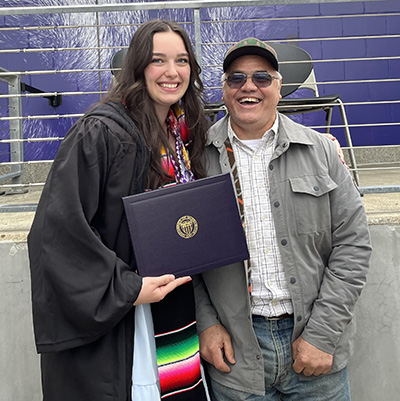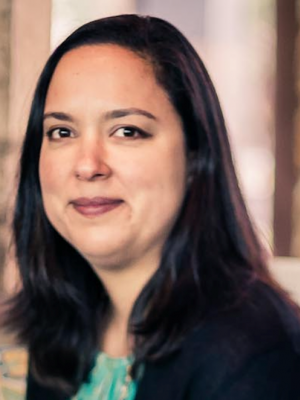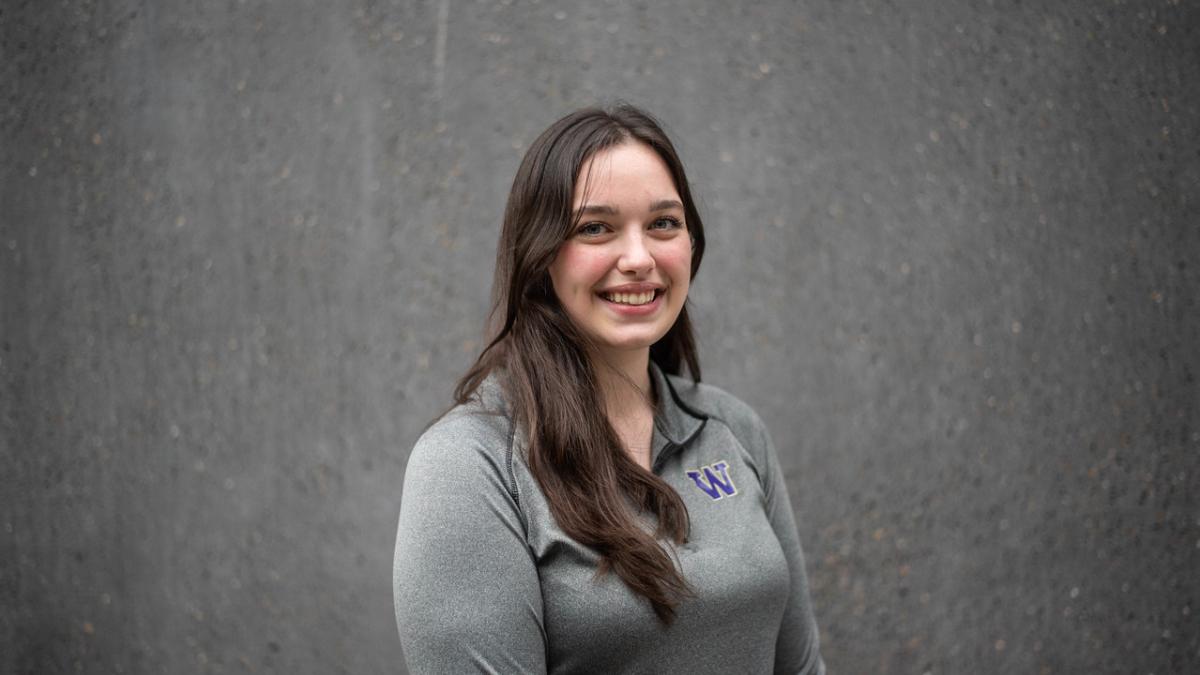I was born and raised in Morton, Washington, a small rural town near Mount Rainier whose local economy is primarily supported by lumber mills. I completed my undergraduate degree at the UW, where I initially wanted to study biology. After taking my first environmental health class, I was hooked and decided to study environmental and occupational health.

My dad, an immigrant from Guatemala, has worked in the lumber mills my entire life. This fact, in conjunction with concepts I have learned while taking occupational health classes offered by the UW Department of Environmental & Occupational Health Sciences (DEOHS), led to a blossoming passion for ensuring people like him have access to safe and healthy work environments. I am a firm believer that every person, regardless of where they come from, has the right to feel safe and taken care of in their workspace.
Supporting Casa Latina’s efforts to train workers
I am collaborating with DEOHS Assistant Professor Diana Ceballos and Associate Teaching Professor Nancy Simcox on a Northwest Center for Occupational Health and Safety (NWCOHS) Professional Training Opportunities Project with Casa Latina, a Seattle-based nonprofit supporting the Latinx community.
Casa Latina helps local Latinx community members obtain jobs and offers classes to teach them about safety and their rights as workers. To align with the Casa Latina mission, we are working to help them create an Occupational Safety and Health Administration (OSHA) 10 Training Program in Construction.
The 10-hour OSHA construction training program is for entry-level workers and covers hazard identification, controls and prevention, and worker rights. Having an OSHA 10 card may make these community members more appealing to employers, furthering their ability to obtain work while also informing them of their rights while at the workplace.
Notably, DEOHS Assistant Teaching Professor Eddie Kasner teaches courses at the UW that offer the same opportunity to students! Thanks to him and Associate Teaching Professor Emeritus Rick Gleason, I personally have a 30-hour OSHA card for both general industry and construction and a 10-hour card for general industry.
Developing new training materials
Currently, Casa Latina has a series of PowerPoint slides and related activities to teach safety concepts for a construction OSHA 10 program. However, their current materials do not encompass all topics required for this accreditation.

We worked to identify topics that needed bolstering as well as on identifying alternative methods of instruction that did not rely on reading from PowerPoint slides since we wanted to make this training comprehensive to those with low literacy.
So far, we have identified other methods of instruction, such as storytelling, interactive group activities, and photo or video identification, as proven tools useful in teaching low-literacy populations. We recently finished going through Casa Latina’s training materials to identify areas of improvement. We will now begin working on strengthening topics that do not currently meet the requirements.
Reflections on the experience
I am so incredibly grateful that Diana has given me the opportunity to work on this project with her. I could go on forever, but she genuinely is one of the most kind, considerate, intelligent and ambitious people I have ever had the pleasure of knowing.
She makes me feel like there is no goal out of my reach and goes out of her way to do quite literally anything she can to further my success. Her passion for working with organizations like Casa Latina to better the community is truly unmatched.
Through this project, she has taught me the importance of utilizing soft skills to effectively collaborate with community members. I genuinely do not know how she is able to balance all the intense projects she works on, but her hard work, determination and comforting kindness have continued to inspire me. If I were to gain anything from working on this project with her, it is the hope that one day I may be half the woman she is.
Adapted from the original post here.




